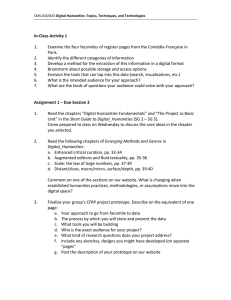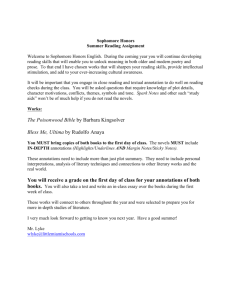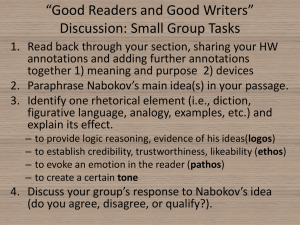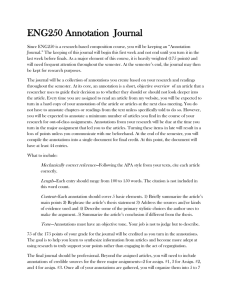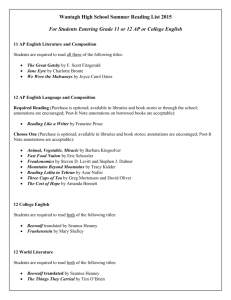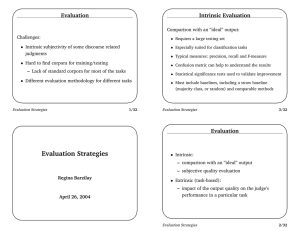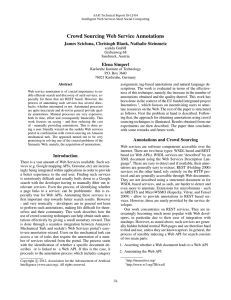Document 13342280
advertisement
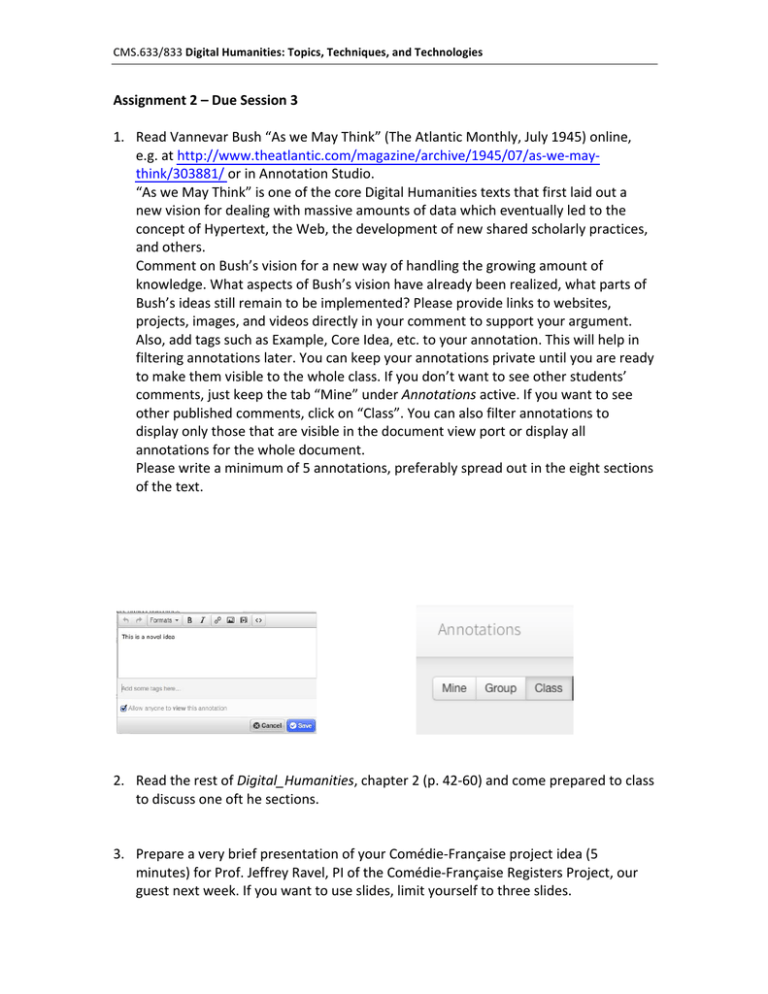
CMS.633/833 Digital Humanities: Topics, Techniques, and Technologies Assignment 2 – Due ^ĞƐƐŝŽŶϯ 1. Read Vannevar Bush “As we May Think” (The Atlantic Monthly, July 1945) online, e.g. at http://www.theatlantic.com/magazine/archive/1945/07/as-­‐we-­‐may-­‐ think/303881/ or in Annotation Studio. “As we May Think” is one of the core Digital Humanities texts that first laid out a new vision for dealing with massive amounts of data which eventually led to the concept of Hypertext, the Web, the development of new shared scholarly practices, and others. Comment on Bush’s vision for a new way of handling the growing amount of knowledge. What aspects of Bush’s vision have already been realized, what parts of Bush’s ideas still remain to be implemented? Please provide links to websites, projects, images, and videos directly in your comment to support your argument. Also, add tags such as Example, Core Idea, etc. to your annotation. This will help in filtering annotations later. You can keep your annotations private until you are ready to make them visible to the whole class. If you don’t want to see other students’ comments, just keep the tab “Mine” under Annotations active. If you want to see other published comments, click on “Class”. You can also filter annotations to display only those that are visible in the document view port or display all annotations for the whole document. Please write a minimum of 5 annotations, preferably spread out in the eight sections of the text. 2. Read the rest of Digital_Humanities, chapter 2 (p. 42-­‐60) and come prepared to class to discuss one oft he sections. 3. Prepare a very brief presentation of your Comédie-­‐Française project idea (5 minutes) for Prof. Jeffrey Ravel, PI of the Comédie-­‐Française Registers Project, our guest next week. If you want to use slides, limit yourself to three slides. MIT OpenCourseWare http://ocw.mit.edu CMS.633 / CMS.833 Digital Humanities Spring 2015 For information about citing these materials or our Terms of Use, visit: http://ocw.mit.edu/terms.
